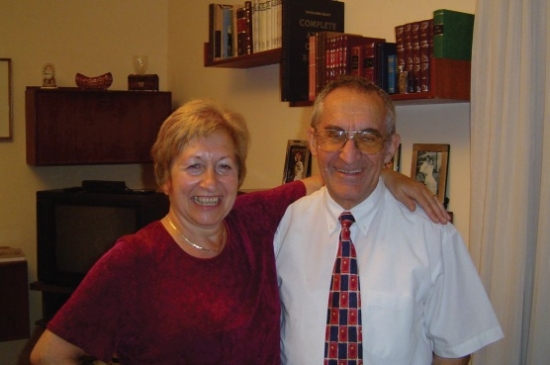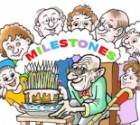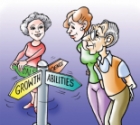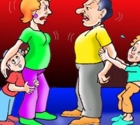
Celia Berger with her late husband
Celia Berger lost her husband over a year ago and decided to write down her thoughts on this traumatic time in her life. She hopes they may even help people who find themselves in a similar position.
This article is written primarily to help people who suddenly find themselves on their own after the death of a partner. As I am just going through this completely new phase of life, I thought I would share a few points with you. Some of these points could also apply to those who are divorced.
After I lost my husband, I found myself inundated with invitations from family and friends. I could have gone out from morning until night. The situation became so overwhelming that I could hardly cope with it. But this has now calmed down somewhat.
There are some very important points to note when you are bereaved, whether you are male or female.
You are now on your own and there are many things to cope with, apart from your own emotional state. If you are a woman you may not know how to cope with practical things around the house: fixing the electricity or the water, or changing a plug, to name but a few items. I have just discovered that both the electricity box and the water mains are outside in the parking lot!
What about the Shabbat clock if you use one? Do you know how to turn it on and off and to adjust the time? What do you do if the electricity fails? What do you do if a picture falls from the wall? What about paying the bills? What about banking? What about writing checks, taking money out of an automatic teller machine, exchanging foreign currency, investments, and so many other things that must be learned? It is true that nowadays many men and women are capable of dealing with all of the above. However, what happens if you have never attended to any of these things? What happens to all the paperwork which will have to be dealt with?
And how do you cope with people, particularly if they are friends of your deceased partner? Are they being sorry for you or do they genuinely want to be with you in your own right? Will you be able to start entertaining on your own? Will you be able to invite singles together with couples?
Bereaved men have other difficulties. Your partner is no longer there and your meals are not waiting for you. You have to make sure there is food in the home – maybe you don't even know where the dishes are kept! It would be a good idea to learn to prepare a few simple dishes. People are often more sympathetic to a man and tend to invite him over for meals frequently. This is good for a while, but not forever. Are you able to use a washing machine? There are so many things to learn to do.
A bereaved woman often tends to cope better than a man. A woman can always find things to do in the home, make arrangements to meet a friend, go to lectures and films with a friend. The situation is more difficult for men who do not usually meet friends for coffee or a meal. Many men are unable to cope on their own, and this is one of the reasons why men find a new partner soon after the loss of their wife.
What do you tell your children and grandchildren about the loss of a well-loved grandparent? Give them a chance to express themselves in any way possible. Drawing is a good way to show what they really feel. One of our grandchildren, who was told that his grandfather was in heaven, said, "Isn't Grandpa lucky – he can speak to God all the time."
It is very important to empty out the closets of clothing and personal items as soon as possible, even though this is an extremely difficult and heartrending thing to do. Try to get someone to help you. The longer you leave this the harder it will be to do.
Trying to be independent does help a lot. Not everyone has children and family who live nearby or who are willing to help. Not everyone has the wonderful support system that I am fortunate to have.
However, you cannot always rely on family and good neighbors. To be alone is a very complex matter. It is completely new for me and I tend to try to work out everything myself. This doesn't always work.
Many people become embarrassed when you mention the departed one. However, never hesitate to talk about the person, particularly if well-loved and you wish him/her to be remembered.
You now have to make decisions by yourself which seemed very simple when two people were involved. Sometimes you cannot do this and have to rely on family or friends to help you. Do not hesitate to ask for help.
A very important way of coping is finding something to fill your time as soon as you can. How do you fill your days? If you do not work, you could try. There are many places where help is very much needed. Do you enjoy walking? There are walking groups you can join, or just walk on your own or with a friend. How about doing something which you never had time to do before – studying, teaching, painting, writing? The list is endless. Many people find themselves completely lost on their own after a lifetime together with their partner, and they need a lot of counseling, patience and sensitivity. It takes an enormous amount of time to realize that this really is the end of the relationship as it used to be. Many people are often in denial.
Your time is your own now – apart from family commitments, you can do whatever you want with it. Try to make your time constructive. It won't be easy at all but hopefully, as time goes by, you will be able to see your way much more clearly. However, don't feel you have to rush into something you don't really want to do. You have to think only of yourself now and find out what is good for you, and only you. You may not want to do anything at all if that is your way of coping.
How do you cope with being alone at night? I have found the worst thing when you come home is that there is no one with whom to share your experiences. For me it is helpful to put the radio on immediately on entering the house, so there is not that awful silence. Watching television, reading books and working on the computer are also very helpful. My solace has always been in writing.
Could you invite yourself to a friend if necessary? The most important thing is to keep busy so that by the time it comes to bedtime you are exhausted and just want to sleep.
There are many times when nothing seems to work, and it's normal to feel very depressed. If possible, keep a diary of things to do and try to get on with it. Sometimes simple everyday things can turn into big problems. You have to realize that you cannot cope all on your own, and again it is easier to call someone for help.
Would you be willing to go to a theater or film with friends and their spouses? There are so many more widows than ever before. If you feel you just want to be with "singles", that is all right as well. Do what is comfortable for you and don’t worry about hurting other people's feelings.
Have you ever given thought as to your own final resting place? It is important to do this even if the idea is repugnant to you. Many people do not want to think about death. It is a subject that seems to be taboo, even though we know it will happen to all of us. Unfortunately, we had not made any decisions about this, but with the assistance of wonderful people we did manage to contact the burial society (Chevra Kadisha), which was extremely sensitive to our needs and helped enormously in selecting the grave. Had this had all been arranged before, there would have been one less issue to think about.
Speaking from experience, do approach this subject with your partner while you are both together, however uncomfortable. You will both feel comforted knowing that you have made this decision together.
What happens, when people whom you know well ignore you? Is it because they are embarrassed? Is it because they do not know what to say? Many people do not know how to react to a loss, and there is a certain facial expression they have when talking to a widow or widower.
There might also be the feeling of being taken advantage of because of your status. Be aware of this and act accordingly. It is not always easy, but most people do not want to be burdened with your pain. It is just not interesting to them.
How did you view your marriage or partnership? Did you always do everything together? Did you have separate interests? It is much more difficult if neither of you had separate interests. It is as though you have been torn in half. It is extremely important to have interests that are separate from your life together. It will be much simpler to continue with these activities afterward.
People these days, especially women, tend to live much longer than in earlier eras. Once you reach retirement age, health problems may begin, and you may realize that you won't always be together. Most people do not think about this. One should acknowledge that ageing, health issues and death are a part of life and inevitable.
There is often a problem when buying food and items for the home when there is just one person involved. It is easier to buy the same amount as before. It is also difficult to remember to buy more items when you have guests or when family arrive. It is very important to make proper meals for yourself even though it may be difficult.
There is also the feeling of being inadequate. Did I do enough for my partner? Should I have been there all the time? Was the correct medical treatment given? Could more have been done? There are many questions to be asked and there is no answer to them.
Do not hesitate to display your emotions by bursting into tears. The English are very fond of the expression "stiff upper lip", meaning that one should never give way to emotions. However, it helps enormously to let everything out, and sometimes you cannot help it — it just comes.
What is overwhelming to me is the incredible outpouring of love and care from my family and friends, always making sure that I am well. I appreciate this very much. It is also due to the very special man to whom I was married who made people feel good inside. They always walked away with a laugh and a smile after his jokes.
I hope this article helps people to come to terms with their grief. It certainly won't happen overnight, and for some it may never happen. As time goes by maybe the pain will lessen, but the memories won't.
ESRA has a counseling and bereavement service – call Susan 052 698 9088.
For other helpful articles on widowhood that have been published in ESRA MAGAZINE, go online to www.esramagazine.com: Managing Widowhood Part 1 (Issue # 156) and Managing Widowhood Part 11 (Issue # 157).
 Milestones 168
Milestones 168 “Be our Guest” at Beauty and the Beast
“Be our Guest” at Beauty and the Beast Advertisers List
Advertisers List Reaching Beyond….THE VIEW FROM 50+
Reaching Beyond….THE VIEW FROM 50+ Collaborative Divorce: A process that puts the family first
Collaborative Divorce: A process that puts the family first THE MOVE
THE MOVE